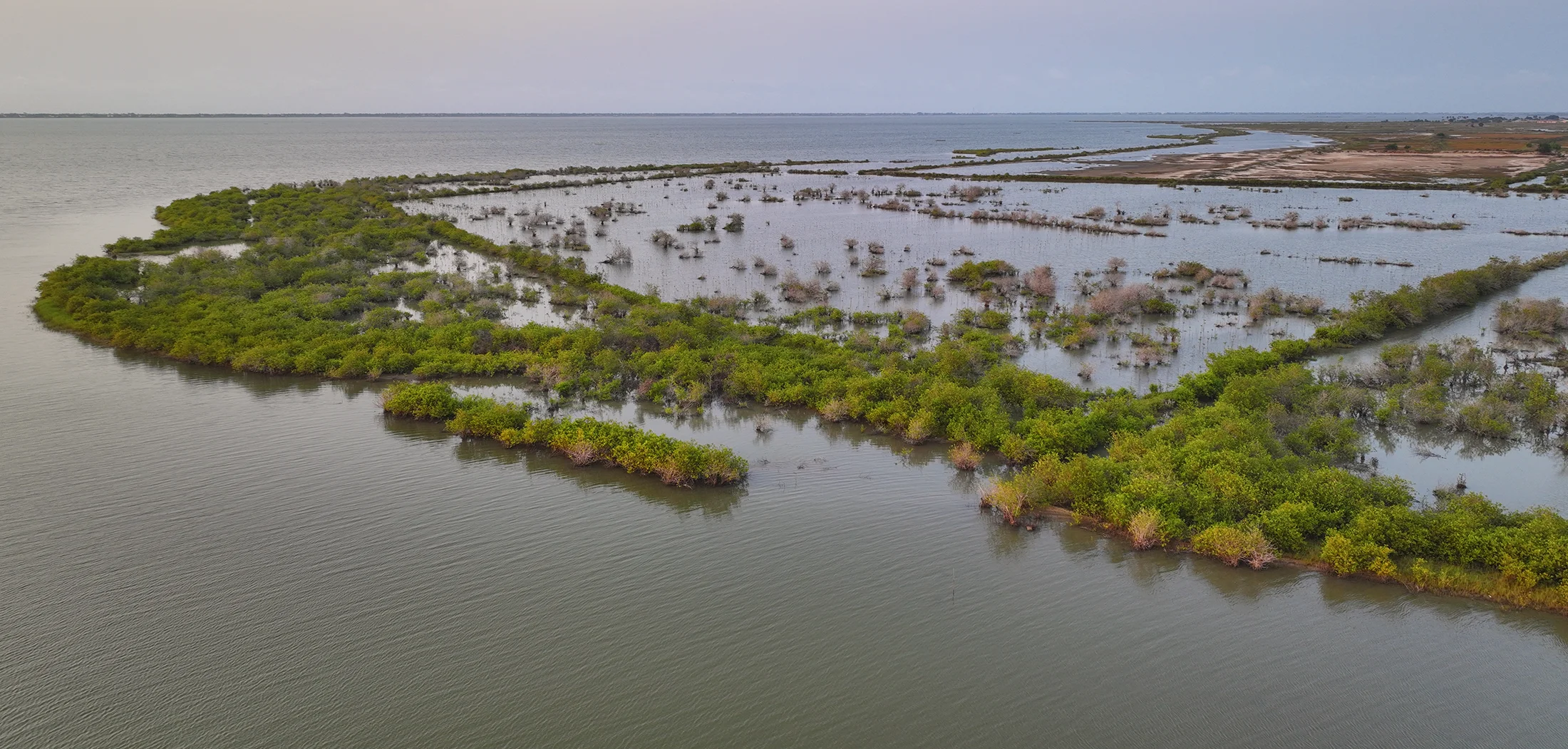Keta Lagoon Blue Carbon Project - Ghana


Keta Lagoon Blue Carbon Project, or Keta Blue, is restoring degraded coastal wetlands in a biodiversity hotspot protected under the global Ramsar Wetlands Treaty. Planting four native mangroves species, this project aims to enhance local biodiversity and mangrove ecosystem health, improving the livelihoods of communities reliant on the lagoon and its surrounding wetlands.
Co-benefits include the revitalization of community fisheries and beekeeping (apiculture) offering food security and new income sources, improved water quality and flood control, and local job creation for planting, nursery work, monitoring, and eco-tourism.






more carbon is captured by mangroves than terrestrial forests
individual waterbirds live in and migrate through the Keta Lagoon

more carbon is captured by mangroves than terrestrial forests
individual waterbirds live in and migrate through the Keta Lagoon
— Andy Haigh, Director of Climate Positive Solutions, Grosvenor

— Andy Haigh, Director of Climate Positive Solutions, Grosvenor




Healthy coastal ecosystems improve water quality, reduce flooding and erosion.

Healthy coastal ecosystems improve water quality, reduce flooding and erosion.
Restored mangroves regenerate natural fisheries and attract bees that produce honey from black mangroves (Avicennia germinans). Two aquaponds are currently under development, with over 320 permanent and seasonal workers engaged.
of full-time workers are women
of part-time workers are women

Restored mangroves regenerate natural fisheries and attract bees that produce honey from black mangroves (Avicennia germinans). Two aquaponds are currently under development, with over 320 permanent and seasonal workers engaged.
of full-time workers are women
of part-time workers are women
We’re partnering with two local organizations—Regenerative Development of Anlo Wetlands Ltd. (ReDAW) and Agrointroductions—who will be leading on-the-ground implementation and the long-term management of the project.
ReDAW brings specialized expertise in wetland ecosystems and regenerative aquaculture. The organization has successfully established four mangrove nurseries across Ghana and operates across eight countries. They were named Top Innovator winner of Africa’s Great Blue Wall Challenge (Seawater Solutions).
Agrointroduction is leading the second phase of the project and brings experience across various ecological zones, along with a strong reputation and connections with local and national governmental agencies.

We’re partnering with two local organizations—Regenerative Development of Anlo Wetlands Ltd. (ReDAW) and Agrointroductions—who will be leading on-the-ground implementation and the long-term management of the project.
ReDAW brings specialized expertise in wetland ecosystems and regenerative aquaculture. The organization has successfully established four mangrove nurseries across Ghana and operates across eight countries. They were named Top Innovator winner of Africa’s Great Blue Wall Challenge (Seawater Solutions).
Agrointroduction is leading the second phase of the project and brings experience across various ecological zones, along with a strong reputation and connections with local and national governmental agencies.











Verra sets the world’s leading standards for climate action and sustainable development. The Verified Carbon Standard (VCS) is the most widely used GHG crediting program. The Climate, Community & Biodiversity Standard (CCB) indicates that a project mitigates climate change, supports local communities, and protects vulnerable species.


